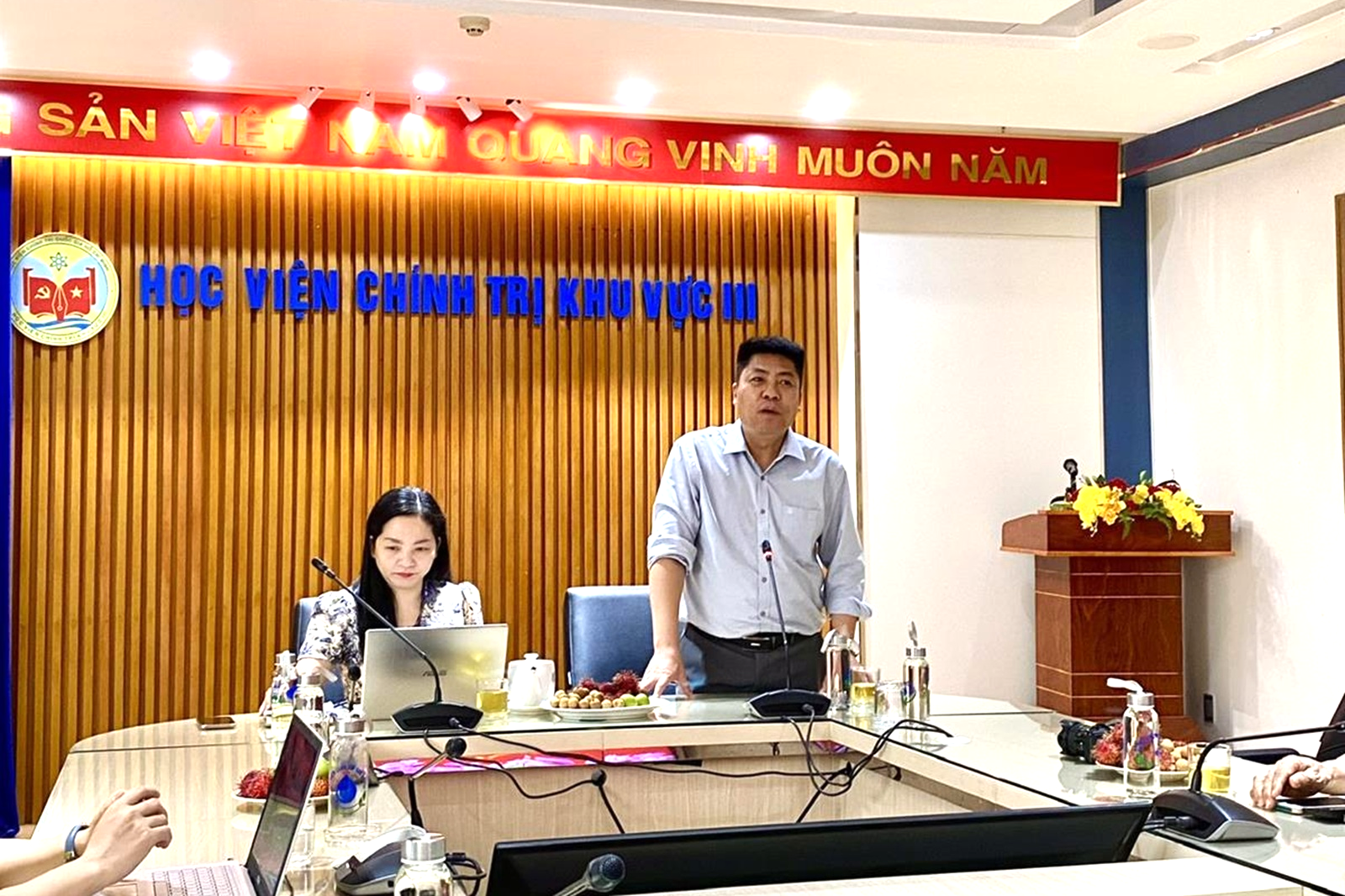Attending the seminar, on behalf of the Regional Political Academy III, were Associate Professor, Dr. Doan Trieu Long, Director of the Academy; Dr. Tran Thi Hang, Deputy Head of the Faculty of Ethnic Studies and Religion; and lecturers and researchers from the Faculty of Ethnic Studies and Religion. On behalf of the co-organizing unit, attendees included Associate Professor, Dr. Nguyen Truong Giang, Head of the Faculty of Anthropology and Religious Studies, University of Social Sciences and Humanities; Associate Professor, Dr. Nguyen Ngoc Thanh, former Deputy Director of the Institute of Ethnology - Vietnam Academy of Social Sciences; and lecturers and researchers from the Faculty of Anthropology and Religious Studies.
At the seminar, delegates shared many experiences in researching and teaching ethnic and religious issues in both environments: training political theory cadres and undergraduate/postgraduate training. The discussions focused on: Innovating teaching methods, increasing interaction and practical application in teaching; closely linking ethnological and religious theory with the Party and State's ethnic and religious policies; overcoming difficulties in accessing sensitive, interdisciplinary, and regionally specific content…
Associate Professor Dr. Nguyen Truong Giang - Head of the Department of Anthropology and Religious Studies, University of Social Sciences and Humanities, delivered a speech at the seminar.
Dr. Tran Thi Hang - Deputy Head of the Department of Ethnic Minorities and Religions, Regional Political Academy IIISpeaking at the seminar
Simultaneously, experts and lecturers presented some of the latest research findings, highlighting trends in social, ethnic, and religious transformation in the modern context. These included emphasizing the following issues: the urgent need to integrate academic research with practical local needs; the role of ethnic and religious studies in planning and adjusting sustainable development policies for ethnic minority areas; and the difficulties in reaching communities and building trust when conducting research in sensitive areas.
At the seminar, the two units discussed and agreed on a long-term cooperation plan, including: organizing regular academic seminars, exchanging lecturers and collaborating on the compilation of teaching materials; coordinating field research projects, focusing on areas with complex and rapidly changing ethnic and religious situations; and supporting postgraduate training and professional development for research and teaching staff.


